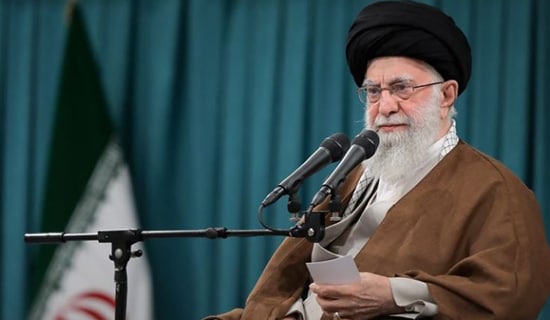A two-part investigative article recently published in the Syrian weekly Al-Nour, the mouthpiece of the Syrian Communist Party, which is part of the ruling coalition, criticized the Syrian law banning marriages between non-Muslim men and Muslim women. The article stated that the ban discriminates between citizens of different faiths, and violates the principles of freedom of religion and freedom of marriage.
The following are excerpts:[1]
Even Converting to Islam "Does Not Protect [Mixed Couples] from Persecution and Murder"
"The religious courts of the Christian and Druze communities do not perform marriages for mixed-faith [couples], [because] Article 48 of the [Syrian] Personal Status Code, [enacted] by the shar'ia courts, pronounces such marriages illegal. This means that [non-Muslim] men [who wish to marry Muslim women] must convert to Islam in order to bypass the legal prohibition. However, [even] the legal step [of conversion] does not protect [mixed-faith couples] from persecution and murder...
"Attorney Du'a Moussa, who deals with women's [rights], points out, 'The Syrian penal code exempts families [from punishment] in cases of honor killings, and the murder of Muslim women who marry non-Muslim men falls under this category...'
"[Non-Muslims] who wish to marry [Muslims] must submit a request to convert to Islam. According to the Civil Affairs Department of the Interior Ministry, 450 people submitted such requests in 2006. However, not all the requests are granted.
"Salwa Nahhas, secretary of the conversions department in Rif Dimashq province, reported: 'In 2006, we received 54 requests for conversion, 21 of which were rejected on various grounds. At our last meeting, [for example], we rejected the request of a Christian man [who wished to convert to Islam], because he could not recite a single sura from the Koran...'[2]
"[The problem] is encountered not only by [members of] the Christian sects. Druze men who wish to marry [Muslim women] are likewise required by the shari'a courts to present a certificate indicating [that they have converted to Islam]. Nabih Al-Sa'di, expert on the monotheistic [religions], has called this a serious flaw in [Syrian] law. He asked how Article 48, which prohibits a non-Muslim man from marrying a Muslim woman, could possible apply to the Druze, when [Article] 441 of the Syrian penal code – which enumerates the sects [that are considered] Muslim – defines [the Druze] as Muslims."
"I Reject [The Notion] That I Must Convert to Islam In Order to Marry the Woman I Love"
The article tells the story of a couple whom both the church and the shari'a court refused to marry, on the grounds that they were of different faiths: "[The man] called the law forbidding these marriages 'twisted,' [and added]: 'I reject [the notion] that I must convert to Islam in order to marry the woman I love. Don't we have the right to marry and still keep our [respective] faiths?'
"These two found a way to register their marriage, but have since been living in fear, [because] 'anyone can expose them and appeal [to the courts] for their divorce,' as they put it.
"The wife, who has a master's degree in social studies, relates: 'My family had no problem [with my marriage to a non-Muslim]. The [sacred] texts of my sect do not forbid marriage to a member of a different faith, but the shari'a courts forbid it. That is the paradox: the religious texts are more progressive than the [Syrian] Personal Status Code.'
"Why Do We Force People to Act in Ways That Contravene Freedom of Faith and Freedom of Marriage?"
"Attorney Du'a Moussa also criticized Article 264 of the [Syrian] Personal Status Code, which states that a Christian may not inherit [the property of] a Muslim and vice versa: 'A Muslim woman may inherit from her Muslim husband, but a Christian woman married to a Muslim may not inherit from her husband,' [she said.] 'That is discrimination...'
"Moussa stated [further]: 'The Syrian marriage law is a religious law, and until [Syria] passes a non-religious law [allowing] civil [marriage], interfaith marriages will continue to be impossible. The [Syrian] Personal Status Code [thus] discriminates not only between men and women, but also among women: a Christian woman may marry a Muslim man, while a Muslim woman may not marry a Christian man.
"'[Moreover], the Syrian courts do not even recognize [the marriage of a Muslim man] who contracted a civil marriage to a foreign woman abroad. This creates problems and conflicts, especially regarding issues of raising the children, inheritance, etc.
"'Lebanon and Tunisia recognize [civil] marriages, and Syria [too] has legal [provisions] for civil marriage – but they apply only to foreigners [living in Syria]!'
"Moussa added: 'Why do we force people to act in ways that contravene [the principles of] freedom of faith and freedom of marriage... as well as the CEDAW Convention,[3] which grants equality to men and women in marriage, and in related matters, regardless of their faith? [The problem is that] our [Muslim] clerics do not wish to relinquish their authority and privileges. They have authority in matters of marriage and divorce, as do [their counterparts] in the Christian religious courts, even though they are not judges and never studied law.'"
Survey: 64% of Students Support Civil Marriage
As part of its investigation, the newspaper surveyed 500 students at several Syrian universities on the subject of interfaith marriage. The following are some of the findings of the poll, as stated by the paper:
Thirty-one percent of the respondents reported that at least one member of their family was married to a non-Muslim.
Forty-one percent of the students said that they were in favor of interfaith and inter-sect marriages; 33% accepted such marriages as a given; 21% opposed them; 40% said that they would prefer to sever relations with anyone who married outside the faith; and 1% called for persecuting or even killing those who do so.
Asked about the main factor preventing interfaith marriages, 35% of the students said it was the "social environment"; 30% cited family opposition, 18% evoked the law against interfaith marriages and fear of retaliation against the woman by relatives seeking to avenge the family honor, and 17% mentioned opposition by the clerics.
As for honor killings of women who marry outside their faith or sect, 79.4% of the respondents said that were opposed to and condemned such crimes; 5.6% said that they supported them; and 14% took a neutral position.
In addition, 43% said that they would allow their children to marry outside the faith; 38% said that they would not allow it, and 19% said that they would allow their sons to do so but not their daughters.
Also, 64% stated that Syria should legalize civil marriage as an alternative to religious marriage.
Endnotes:
[1] Al-Nour (Syria), February 20, 2008, March 5, 2008.
[2] An article posted on the Al-Arabiya website on conversion in Syria reported that potential converts to Islam must memorize some Koranic verses, or at least the Fatiha (the first sura of the Koran), and must learn some basic principles of Islam pertaining to prayer and purification. (www.alarabiya.net, March 2, 2008).
[3] The Convention on the Elimination of All Forms of Discrimination against Women was adopted by the U.N. General Assembly in 1979.








